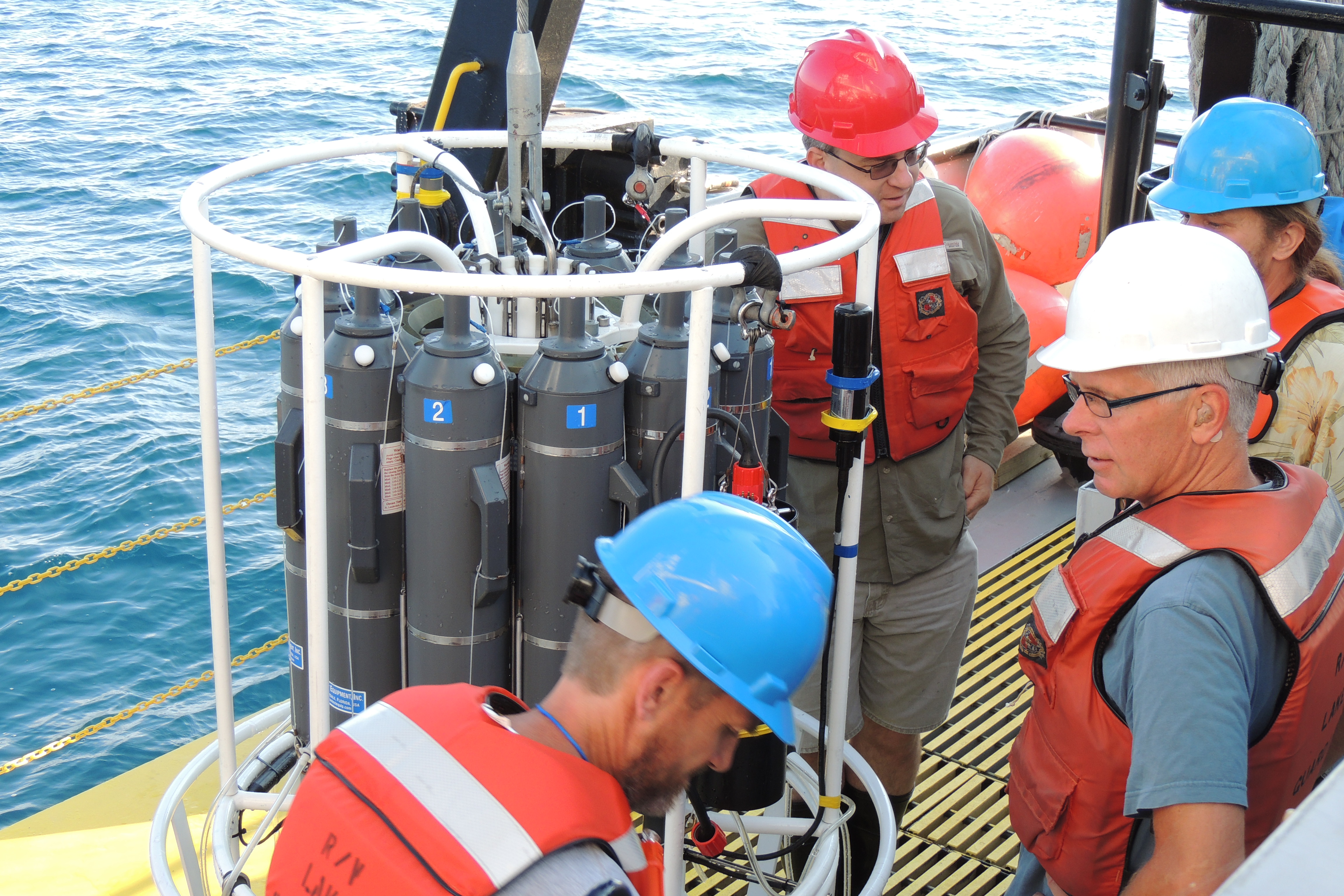Michigan teacher highlighted for excellence in Great Lakes literacy and learning
Hands-on experiences helped Mark Koschmann connect his students to science.

Michigan Sea Grant’s education programs promote a commitment to the NOAA Great Lakes Literacy Principles and learning opportunities. Our educational efforts include both formal and informal education programs, which engage both youth and adult audiences through the lens of Great Lakes learning and place-based education (PBE) experiences.
Michigan Sea Grant supports a variety of opportunities to connect schools with Great Lakes science and community partners. We support educators through curricula and professional learning opportunities to launch collaborative PBE efforts with their students. However, our staff are not the only people at the heart of the most meaningful and engaging Great Lakes literacy experiences for students across Michigan. It is more often our many amazing school and teacher partners in our educational school districts who help to connect Great Lakes literacy and learning as part of their educational work in schools.

During October 2020, the regional Center for Great Lakes Literacy Teacher Feature highlights a Michigan teacher – Mark Koschmann from Midland, for his excellence in Great Lakes education. Both the Center and Michigan Sea Grant celebrate the many amazing ways he has connected youth to the Great Lakes and watershed science education opportunities and experiences. “My classes have presented their findings to professionals at the American Chemical Society conference and the H2O Water Chemistry Presentation at Dow Diamond. I’ve had students go into water quality and chemistry at the university level and are currently involved in those fields,” he says.
The Center for Great Lakes Literacy (CGLL) is a collaborative effort led by Sea Grant educators throughout the Great Lakes watershed. The Center facilitates hands-on experiences, educational resources and networking opportunities that promote Great Lakes literacy among a community of Great Lakes educators, students, scientists, environmental professionals, and citizen volunteers, dedicated to improved Great Lakes stewardship.
Mark Koschmann has long collaborated with Sea Grant and Center for Great Lakes Literacy. He has recently retired from St. John’s Lutheran School in Midland, and we take this opportunity to celebrate his many successes and his well-earned retirement. No doubt Mark will long continue to serve as an ally for Great Lakes literacy and learning.
For more information about CGLL and Great Lakes Literacy education resources and opportunities visit the Center’s website.
Michigan Sea Grant helps to foster economic growth and protect Michigan’s coastal, Great Lakes resources through education, research and outreach. A collaborative effort of the University of Michigan and Michigan State University and its MSU Extension, Michigan Sea Grant is part of the NOAA-National Sea Grant network of 34 university-based programs.
This article was prepared by Michigan Sea Grant under award NA180AR4170102 from the National Oceanic and Atmospheric Administration, U.S. Department of Commerce through the Regents of the University of Michigan. The statements, findings, conclusions, and recommendations are those of the author(s) and do not necessarily reflect the views of the National Oceanic and Atmospheric Administration, the Department of Commerce, or the Regents of the University of Michigan.



 Print
Print Email
Email

